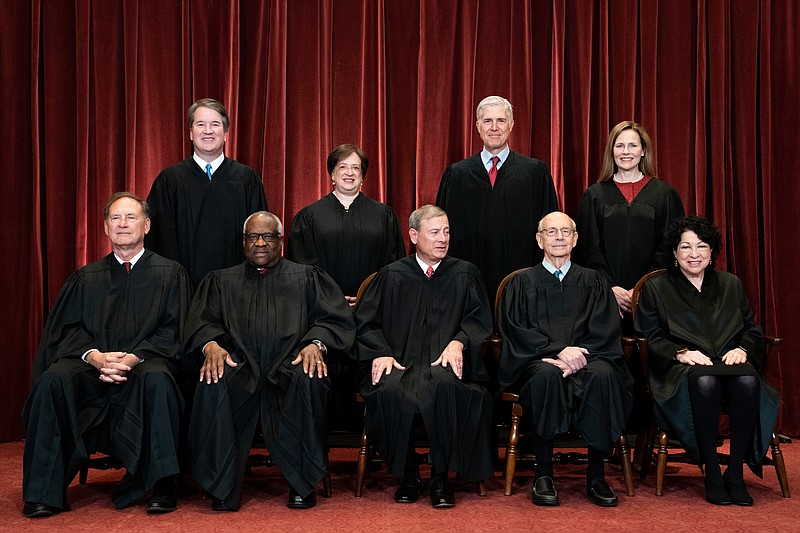Supreme Court Chief Justice John Roberts lamented recently that he didn't "understand" why the court's legitimacy has been diminished in Americans' eyes merely because it has issued "opinions people disagree with." If he really thinks that's the problem, then, no, he doesn't understand at all. Any sober assessment of the court's behavior in the relatively brief period since Senate Republicans repeatedly rewrote the rules to stack it with conservatives yields a clear conclusion: The court is increasingly being viewed as a tool for partisan political hackery because it's increasingly acting like one.
The court's current conservative majority is in place primarily because of the darkly impressive gamesmanship of then-Senate Majority Leader Mitch McConnell. He infamously held one vacant seat open for 11 months on the makeshift premise that the next president should choose, then rammed through another nominee in mere weeks to ensure that a subsequent president couldn't. Shameless hypocrisy, once a bug in politics, was thus confirmed as a feature for today's GOP.
As damaging as that Machiavellian stunt was to the court's legitimacy, it might have rebounded if not for its behavior since then. Though blessed with lifetime appointments that supposedly insulate justices from the muck of partisanship, the court's majority has nonetheless hewed to the Republican political agenda as diligently as any freshman legislator on issues like gun restrictions, the environment and, most of all, abortion rights.
In its Dobbs v. Jackson Women's Health Organization decision this year, the court's majority overturned a half-century of precedent protecting abortion rights even though (as Roberts himself wrote in a scolding concurrence) it wasn't a necessary step to decide the case at hand. Yet the court's five hard-core conservatives eagerly reached around that case to bigfoot into the broader culture-war fight over abortion.
As the scathing dissent by the court's three liberals correctly noted, the majority discarded Roe and other abortion rights precedents "for one and only one reason: because it has always despised them, and now it has the votes to discard them. The majority thereby substitutes a rule by judges for the rule of law."
To revamp standing law for no reason except that one side suddenly has the votes is how legislatures operate. It's not how judges should. Judges are, or are supposed to be, bound by precedent until there is a compelling legal reason to break from it. Yet in this case, the only reason they did it was that they could.
Notwithstanding his feigned confusion, it's unlikely Roberts doesn't understand the problem with that; again, he expressed exasperation over it in his own Dobbs concurrence. Which begs the question of why he is lecturing America now about its lack of trust in the court instead of working to remind his fellow conservative justices that they are indeed justices, and not Republican members of Congress.
St. Louis Post-Dispatch
